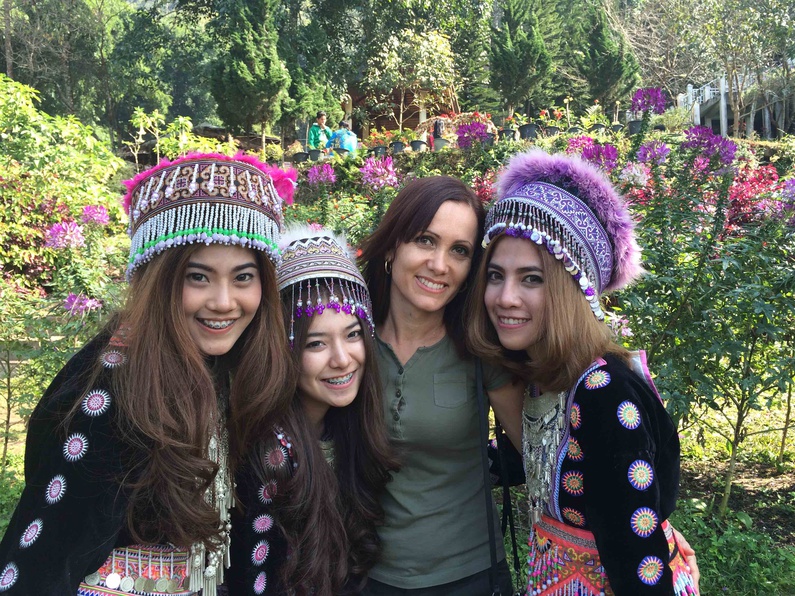
From Barcelona to Thailand: escaping austerity
Published on
Translation by:
Rachel EdwardsIn recent years, thousands of Europeans have abandoned their countries of origin as a result of the economic crisis.
This is the story of Sandra, who decided to take her a chance and leave Barcelona, her birth place, to head to Chiang Mai, in northern Thailand.
A potentially problematic and difficult adventure?
According to the World Bank’s immigration data, nearly 2 million people left Spain between 2010 and 1st July 2014, as a result of the European financial crisis. It's a phenomenon which has no doubt affected other countries too; France registered 649,998 emigrations to other countries, Germany 549,674 and Italy 900,000, to name just a few.
We met up with Sandra, 43, in a café in the historic centre of the city for an interview. She came to Chiang Mai, Thailand over a year ago, leaving behind her hometown of Barcelona. She didn’t mind explaining the problems and difficulties she faced in adapting to a completely different culture.
After talking to her, it seemed that nothing is as easy as it appears in television programmes, like Spanish People in the World from Televisión Española, which features expatriates constantly saying how easy everything is and how happy they are having made the big leap. To sum up, luck and effort seem to be the answer to the many problems you could face if you decide to take this big step.
Cafébabel: why did you decide to leave Spain and come to Thailand?
I was tired of constantly seeing the precarious employment situation in my country because of the crisis and seeing first-hand people who were without work. Thankfully I had a job in Spain, in an primary health care centre. I applied for a period of unpaid leave to come and live here and disconnect from the sadness of reality in my country. Thailand seemed to me the perfect place to take a break in! I admire the happiness of the people, their character and their never-ending smiles.
Cafébabel: Did you know Thailand before you came here?
Yes, I've been here on holiday three times before. Having been here before I suppose I came rather unprepared. I arrived with money I had been saving up for six months and the truth is that I wouldn’t recommend anyone to make the leap with such little money. For the bare minimum you have to calculate the monthly costs and bring with you enough money to last at least a year without any problems.
Cafébabel: When you arrived, where did you stay and how much did it cost? Did you have any problems finding somewhere because you weren’t a local?
When I first arrived in Chiang Mai, I stayed in a hostel for a few days while I looked for a cheap studio to rent for a few months. If I remember correctly, ten days cost me 150 euros. There is so much on offer, going round the city makes you crazy. Apart from that I didn’t have any problems, I was asked for a one month deposit.
 Cafébabel: what is the work situation like for foreigners? What do you do here?
Cafébabel: what is the work situation like for foreigners? What do you do here?
Awful, in Thailand a foreigner can’t do a job that a native can do. If someone from another country wants to start a business here, they have to have a Thai business partner and this partner should own 51% of the company.
Currently, I’m trying to make a living by teaching Spanish to foreigners. I also do consultations for homeopathy for patients over the internet. With the cost of living being so cheap compared to Europe I can get by fairly easily. But it’s not easy, you have to give yourself a daily budget and try not to go over it.
Café babel: what advice would you give to someone trying to make a living in Thailand?
That is a difficult question, but I would say above all, be patient, be well prepared academically and have a high level of English.
Cafébabel: Have you at all felt discriminated against for being a foreigner?
Yes, at first when you’re around people here you get the impression they are ignoring you because they see you as a tourist who can’t speak the language who’ll be gone in a few days. They don’t waste their time on you and don’t really make much of an effort. In their defence I should say that this changes once they get to know you.
Cafébabel: in what way do you think European and Asian people differ the most?
Generalising a little, in their way of life and in their competitiveness. At work there isn’t as much competition between the employees. In Europe we learn about teamwork through courses, here they learn at school. It is instilled into Europeans that they should have a family, buy a house and work for the rest of their life so that you appear to have the same life as your friends or neighbour. Whereas Thai people don’t conform as much as we do.
Cafébabel: What have you learned during your time in Thailand?
The first is that there is a big difference between coming here on holiday and enjoying and getting to know the country, and actually living here. I have learnt to be more humble and to value the things I have a lot more.
Translated from Desde Barcelona hasta Tailandia: un aprendizaje vital



